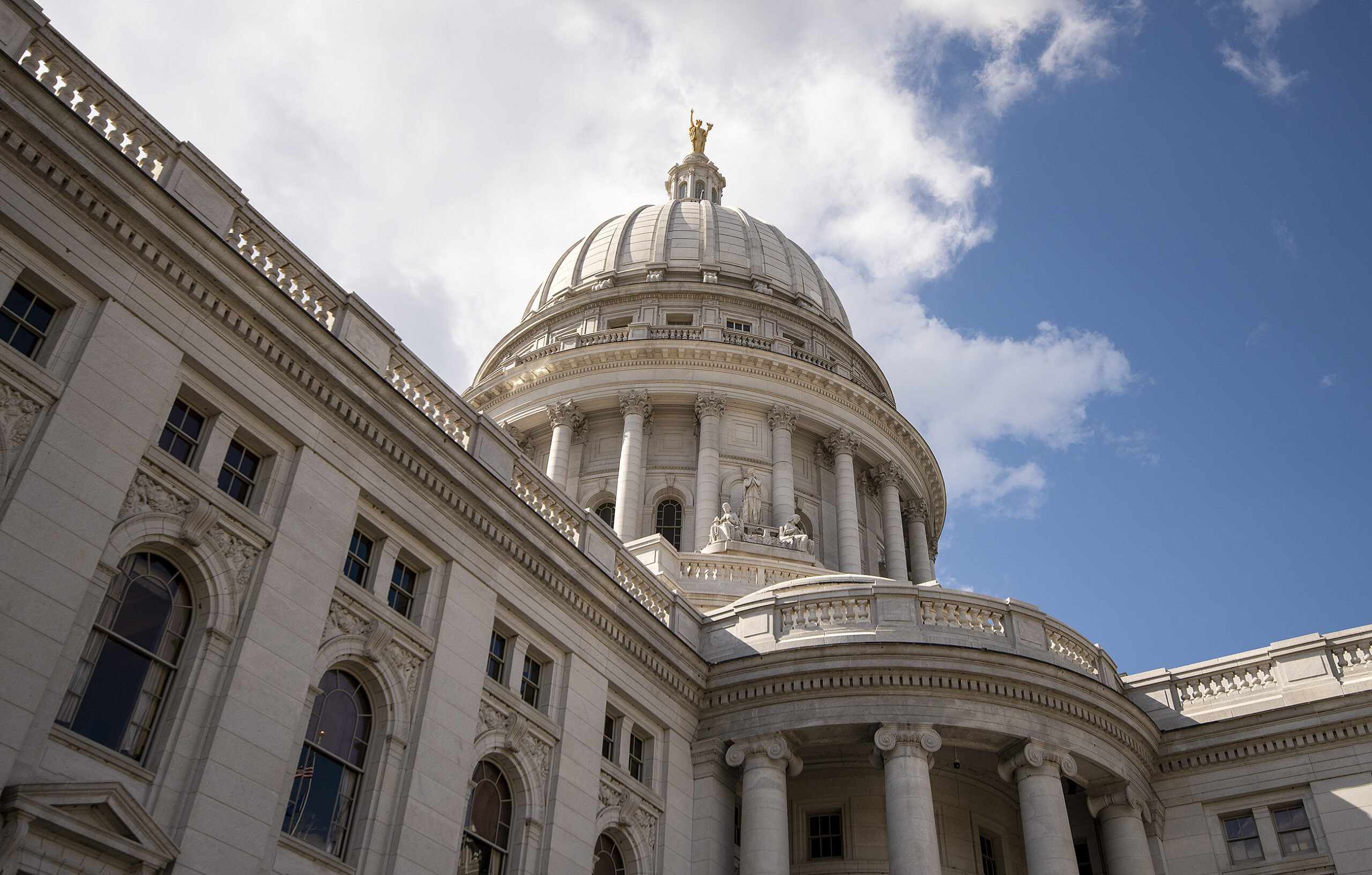If you find yourself in “Facebook Jail,” new legislation could allow you to sue for damages in Wisconsin. A pair of Republican-backed bills in the state Assembly aims to prohibit social media censorship.
“Americans, including journalistic enterprises, are increasingly finding that their speech is being blocked, being hidden, being subverted by the very public forums that they use most often to communicate,” said bill author Rep. Shae Sortwell, R-Two Rivers, at a public hearing Thursday before the Assembly Committee on Constitution and Ethics.
The two bills would essentially prohibit social media platforms from censoring, deplatforming or shadow banning (hiding) certain content.
News with a little more humanity
WPR’s “Wisconsin Today” newsletter keeps you connected to the state you love without feeling overwhelmed. No paywall. No agenda. No corporate filter.
Assembly Bill 589 would prevent the censorship of media enterprises based on the content of their publication or broadcast.
Assembly Bill 530 would prevent the censorship of posts by or about political candidates and elected officials. The bill would also ban “post prioritization” (pushing certain posts higher or lower on a feed) and would require social media companies to publish their moderation standards and notify users of any attempt to censor their content.
Both bills would allow a user to sue a social media company and seek damages for any violations related to censorship.
“That’s how you change business behavior, you make it hurt in the pocketbook,” said Rep. Cody Horlacher, R-Mukwonago.
Horlacher, who authored one of the bills and testified at Thursday’s hearing, said the goal is to ensure all viewpoints are treated fairly.
“We’re not saying you can’t do this, but we are asking for more transparency in how they do this,” said Horlacher. “If you’re going to have certain standards, you have to publish those, and you have to apply them consistently across the spectrum, whether it’s Republican or Democrat.”
During the hearing, Rep. Elijah Behnke, R-Oconto, testified he had been censored on Facebook that very morning. The legislator had shared information about an upcoming rally to protest vaccine mandates and within hours it had been removed.
“Part of our role in public service is to make sure that not only are our constituents well-informed, but also know where we stand on the issues,” said Horlacher. “If we don’t have the ability to communicate with our constituencies in that sort of capacity, that’s a real problem.”
But opponents argue some degree of social media censorship is needed to combat the spread of misinformation, which many say fueled the Jan. 6 insurrection at the U.S. Capitol.
“If we could have had social media rely on factual rather than alternative facts, Jan. 6 may never have occurred,” said committee member Rep. Gary Hebl, D-Sun Prairie, at Thursday’s hearing.
“I don’t know what Jan. 6 has to do with this bill,” responded Horlacher.
Hebl pressed Horlacher on how the new bills would impact the spread of misinformation.
“Does your bill intend to eliminate alternative facts on social media?” said Hebl.
Horlacher said that was up to social media companies to decide.
As the U.S. House Select Committee has been investigating social media’s role in the Jan. 6 insurrection at the Capitol, states across the nation are pushing legislation to ban social media censorship.
Shotwell and Horlacher said they modeled their bills on legislation coming out of Florida and Idaho. A similar law recently passed in Texas, but is already being challenged by tech companies.
Some advocates say that internet regulation is a federal issue that should not be dealt with at the state level. Enforcement of these laws often faces constitutional challenges, as Florida and Texas are experiencing.
At the heart of all this legislation is Section 230 of the Communications Decency Act, which protects internet companies by not holding them responsible for things posted by their users if they act in good faith to restrict content that they find objectionable.
While some argue this makes it possible for online public forums to exist, others argue it violates free speech by permitting internet companies to pick and choose what content to allow on their platforms.
“That is not their job, that is not free speech, that is not being a proper public forum,” said Sortwell.
The bills authored by Sortwell and Horlacher could slowly chip away at those protections, lawsuit by lawsuit.
Both bills are being reviewed in committee, and while they each have a companion bill in the Senate, they’ll need to pass a floor vote before they would become law.
Wisconsin Public Radio, © Copyright 2026, Board of Regents of the University of Wisconsin System and Wisconsin Educational Communications Board.






